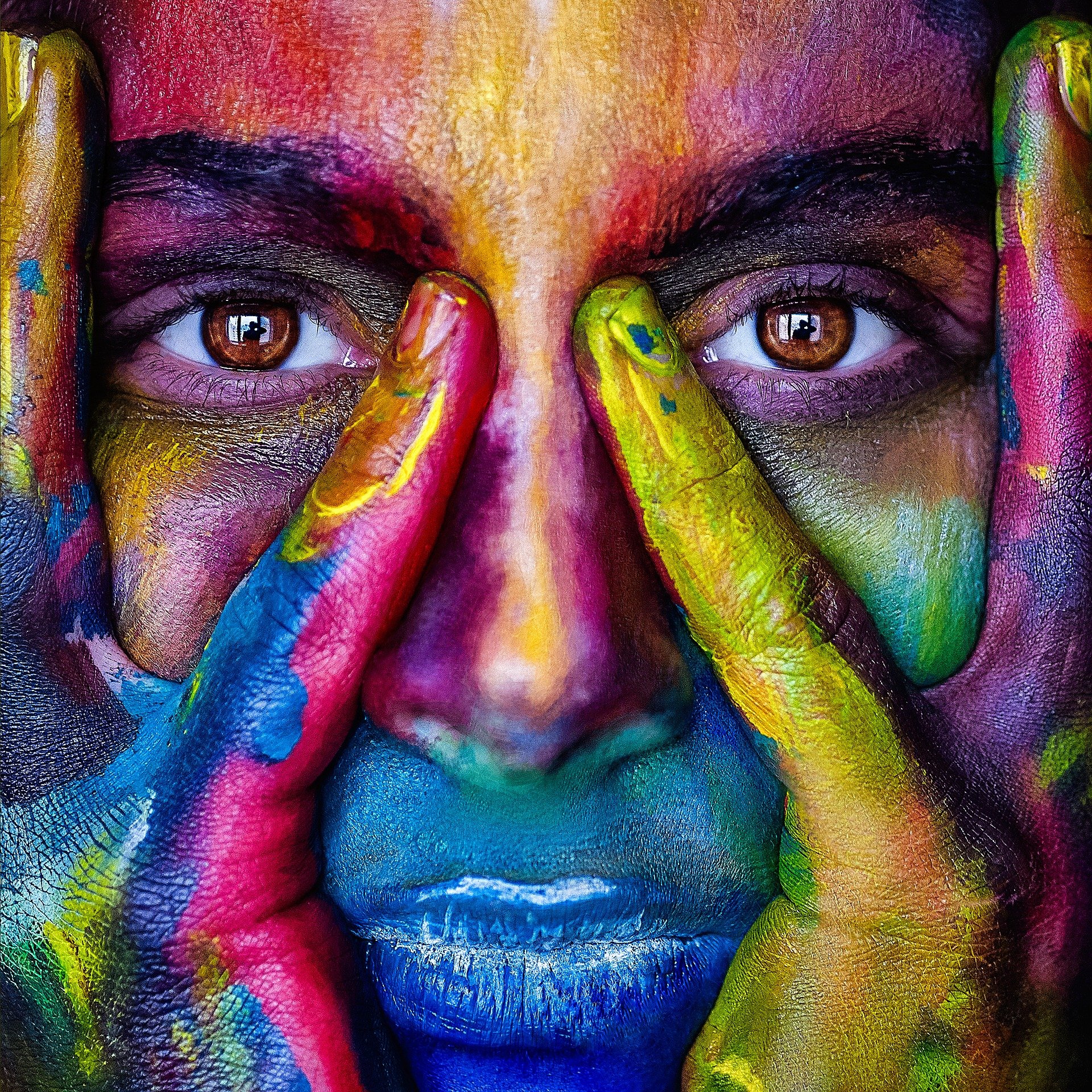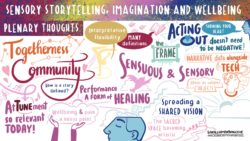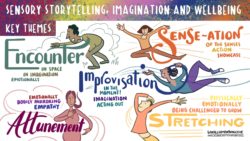Sadler Seminar Blog - Sensory Storytelling, Imagination and Wellbeing

As we come towards the end of our Sadler series on Sensory storytelling, Imagination, and Wellbeing, this seems a good time to reflect on the project and its potential for continued exploration.
The project was initially inspired by our identification of a relatively neglected topic: scholarly research has focussed on the many ways in which wellbeing can be enhanced by engaging in creative practice, but we know very little about the function of imagination and imagining within this process. Of particular interest to us as series convenors (Dr Freya Bailes, Dr Maria Kapsali, Prof Anna Madill) was to explore sensory imagination rather than verbal/linguistic forms of imagining. One thing led to another, and soon we found ourselves reflecting on sensory storytelling in relation to imagination and wellbeing.
Our team brings together perspectives from music psychology, physical performance, and visual research methods. Dr Freya Bailes (School of Music) has published extensively on the topic of musical imagery (imagining music in the absence of the physical sound), including reflections on the embodied imagining of music, and has interests in the intersection between music cognition and wellbeing. Dr Maria Kapsali explores through theory and practice the intersections between embodiment and technology and the development of intersensory modes of sensing and relating. In an interdisciplinary group of researchers, artists, and stakeholders, she has developed a movement sonification technology, which she is currently testing with diverse groups of end-users and towards purposes related to health, expression, and creativity. Finally, Professor Anna Madill (School of Psychology) brings experience in qualitative research methods, with a particular focus on the visual. This includes using photo-led interview methods to support research participants to tell their story and the co-production of visual materials, such as short films, to engage the public and policymakers in the experiences and needs of marginalised communities. Anna has employed these methods in wellbeing projects with people with profound and enduring mental health challenges and, in India, with young people in recovery from substance abuse.
Throughout the process of the Sadler series, we have reached out to academics and practitioners in the UK and beyond, with active participants from India, Australia, Hong Kong, the USA and South Africa. Main contributors to our public events and vlogs span practice and research perspectives, including Radhika Goswami (an Art and Culture Facilitator at AGORA, Assam), Dr Ellie Nixon (an academic, theatre director and actor), Victoria Hume (a composer and specialist in creative health), Prof Norma Daykin (a social scientist researching in the field of arts, health and wellbeing), Dr Adam Strickson (a specialist in the making and use of masks), Dr Raginie Duara (who uses visual methods to research youth substance addiction), Prof Sarah Kettley (a researcher in material and design innovation), Simon Proctor (a music therapist), Prof Paul Cooke (participatory arts for development), and Prof Nicola Shaughnessy (former Principal Investigator of the Imagining Autism project).
This varied set of collaborators has extended our interdisciplinary engagement enormously and enriched our understanding of the many diverse kinds of knowledge relevant to Sensory Storytelling, Imagination, and Wellbeing. Non-verbal ways of knowing were explored in an experiential sandpit session to test different methods of sensory storytelling and imagination. The series culminated in a full-day symposium, including improvised dance by Kali Chandrasegaram that addressed the dancer’s experience of chronic pain. Parts of the day were captured – appropriately for the series theme – by a live illustrator. As you can see, the plenary discussion (see 'Plenary discussion' image below) was rich and wide-ranging: ‘interpretative flexibility’ and the key theme of ‘encounter’ (see 'key themes' image below) have emerged as pertinent to our collective exploration.

plenary discussion image

Key Themes
Now that our Sadler Series is complete, we are applying for research funding to build on what we have learned and to extend our team. Ultimately, we hope to develop a better understanding of the importance of specifically imagining and imagination (Asma, 2022) across sensory modalities to support mental health and wellbeing, particularly when words are not enough.
